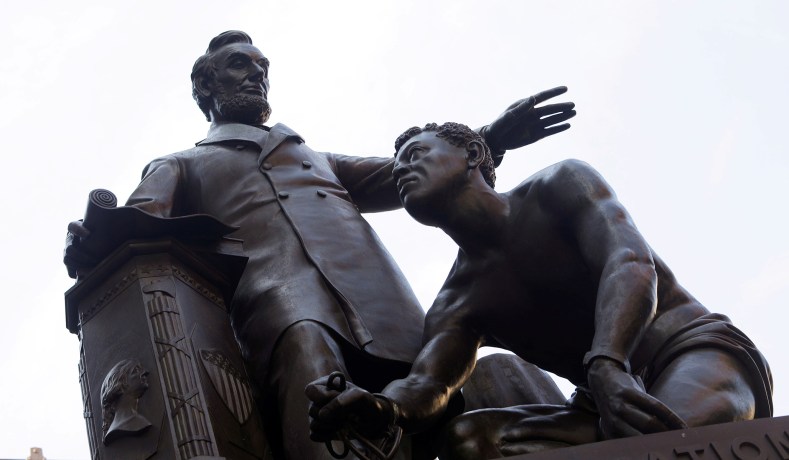
Jamelle Bouie mounts a dishonest effort to rewrite history.
According to New York Times columnist Jamelle Bouie, “Neither Abraham Lincoln nor the Republican Party freed the slaves.” Instead, “the slaves freed the slaves.” Emancipation “was something they took for themselves.” The most that can be said of Lincoln and the nation’s political leadership is that they “helped set freedom in motion and eventually codified it into law with the 13th Amendment” (emphasis added). Of the Union Army, Bouie allows only that it “delivered the news of the Emancipation Proclamation.”
It should not be necessary to defend the proposition that Lincoln, the Republicans, and the Union Army played a major role in ending slavery, but here we are. The very act of casting their role aside so blithely is a species of gaslighting. As is the case with most deliberately distorted history, there are elements of uncontroversial truth to Bouie’s narrative, yet its most sweeping claims are false — and the true parts are merely tools for advancing the falsehood.
Bouie is right that black Americans played a significant role in contributing to the abolitionist movement, the escalating sectional tensions that led to secession, the transformation of the Civil War in the North from a war for the Union to a war of liberation, and the Union’s victory. He is wrong to claim that those contributions in and of themselves were enough to bring about the end of slavery, and that Lincoln, the Republicans, the Union Army, and the majority of the American population were merely passive conduits, bobbing like a cork on the unstoppable streams of history.
Bouie skips the crucial step. All the abolitionist agitation in the world only mattered because the people with real political, military, cultural, and economic power in America — the federal government, Northern state governments, the military, the churches, the leaders of the economy, and ultimately, the voting public — eventually chose to side with the abolitionist movement. It was not a given that they would; in the 1820s and 1830s, they had chosen not to.
Abolitionism in the era of the Founding Fathers was a largely elite phenomenon, originating with the Quakers and dominated by wealthy white Americans such as Alexander Hamilton and Benjamin Franklin. Pioneering abolition laws in Pennsylvania and Vermont were the result of the abolitionists’ top-down efforts; so was the resistance to slavery that forced compromises at the Constitutional Convention. (There were parallel movements among French intellectuals and British evangelical Christians such as William Wilberforce, Granville Sharp, and John Newton.)










